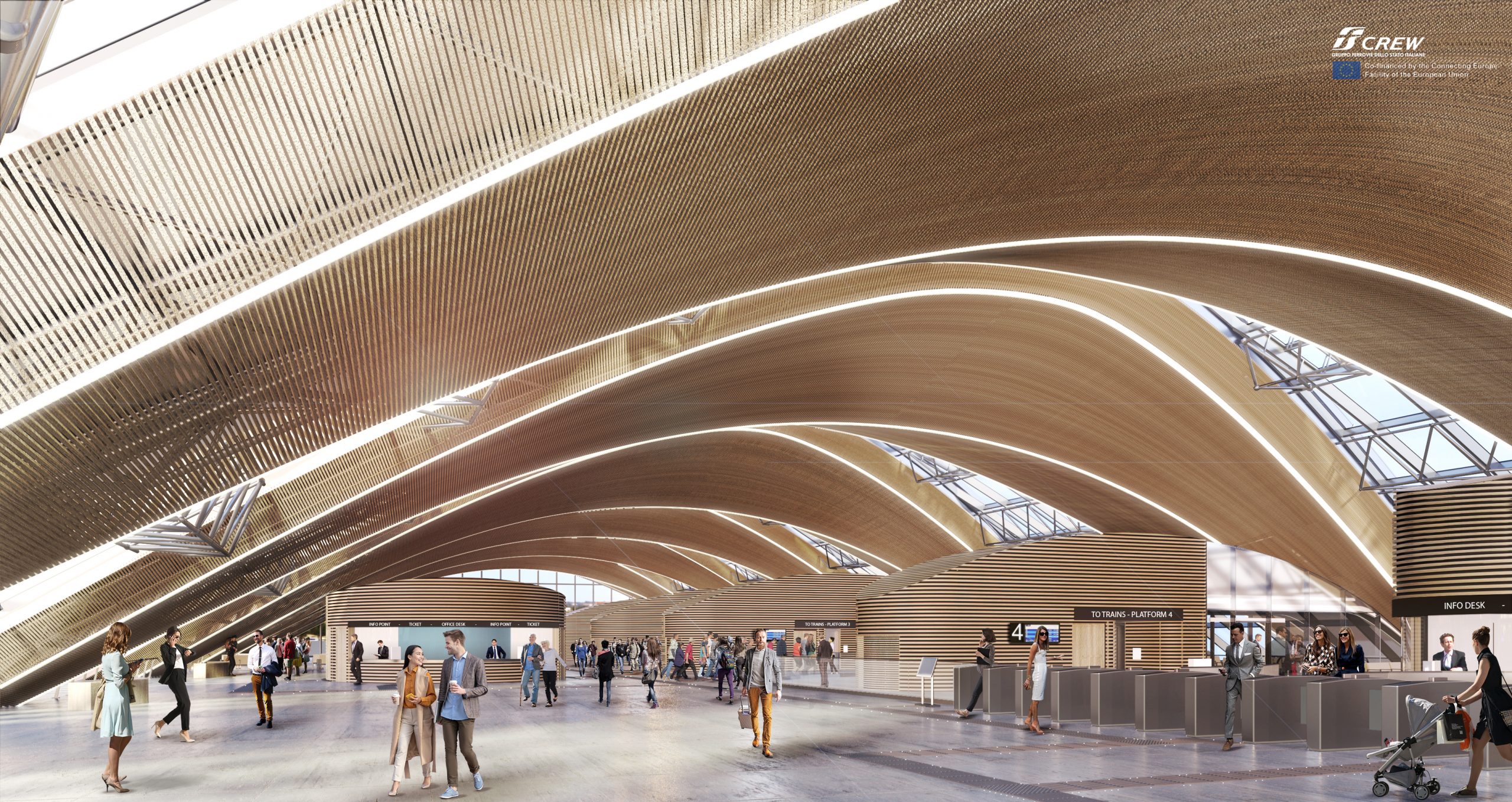
The Rail Baltica joint venture in the Baltic countries RB Rail AS has made public the strategic study for the railway passenger services in Latvia the “Riga Node operation optimisation study”, carried out by the German railway consulting company Ramboll Deutschland GmbH in 2020-2021.
The key objective of this study was to make an in-depth analysis, including benchmarking with international railway transport services and latest developments, and to redefine the future offer for an alternative and overarching railway transport in Latvia and in the neighboring countries, considering all future benefits and opportunities which will be brought with implementation of the Rail Baltica mainline and economic corridor.
The study also investigated the opportunities to integrate railway system into Riga public transport system by creating a timetable which allows 15 minutes interval for urban and sub-urban trains, that way endorsing integration of the train and bus timetables across the railway network – in the future mobility hubs.
To carry out the study, an extensive working group was established involving experts from all main railway sector players in Latvia, including the Ministry of Transport, Latvian Railway, “Pasažieru vilciens”, “Autotransporta direkcija”, Rail Baltica global project coordinator and the joint venture RB Rail AS as well as the national implementing body “Eiropas Dzelzceļa līnijas”. The study was coordinated by the Systems and Operations team of RB Rail AS on behalf of the Ministry of Transport in Latvia.
Full synchronization of the railways systems for the maximum comfort of the future railway passengers
“The principles set up by the Riga Node operation optimisation study are paving the way to a revolutionary transport services at the service of our citizens and will gradually become reality in the coming years. This will be a major step toward a better mobility, and decisive factor to achieve greenhouse gas reduction targets in Latvia,” Talis Linkaits, Minister of Transport in Latvia.
“The general output of this study defines the Latvian-wide transport system service offer, which is based on the concept invented by Swiss Federal Railways, inspired by the famous Swiss Clock. For example, in Riga station, the central hub of the system, trains from and to all directions will be able to meet every hour, allowing interchanges between trains of all directions in optimum conditions of comfort. Moreover, the timetable regularity foresees full integration and synchronization of the two railway systems across many train categories such as high speed, night trains, regional and suburban trains, running on Rail Baltica and Latvian Railway tracks,” explains Jean-Marc Bedmar, Head of Systems and Operation department in RB Rail AS.
“In the professional railway industry terms, the new timetable shall be called symmetrical regular interval timetable, whereas for the citizens and future railway passengers it will mean several things – first, the timetables that would be easier to memorize as the trains would only run on the same schedule every hour and, secondly, the exchange between the trains in the Riga Central station would be made as convenient as possible from and to any directions,” Ralf Jugelt, Senior Consultant at Ramboll Deutschland GmbH adds.
The first results of this study are already implemented with the so-called Rail Baltica construction timetable starting March this year – the passengers can observe a regularity of arrival and departure times across the network to the extent possible during the construction stage of Riga Central station.
“The start of operation of the new suburban trains of “Pasažieru vilciens” and the completion of Riga Central Station reconstruction will bring next significant improvement of the railway timetables offering a better regularity and regular frequency of the train services,” tells Talis Linkaits, Minister of Transport of Latvia.
The study also brought key strategic inputs to develop fully integrated and multimodal “Riga Metropolitan Area public transport plan”, a reform Ministry of Transport together with stakeholders, including “Autotransporta direkcija”, Riga Planning region, Latvian Railway, “Eiropas Dzelzceļa līnijas”, “Pasažieru vilciens”, “Rīgas Satiksme” and municipalities is preparing as part of Recovery and Resilience plan, aiming to encourage citizens to shift from private cars to public transport, notably railways.
Additionally, the study reflects on the first steps towards needed investments to further to enhance speed and service quality related network improvements in the Latvian Railway network in a long-term perspective.
